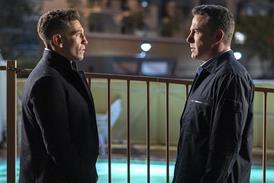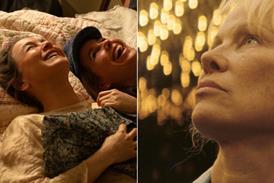In 2005, Feng began to work with an international production team on $20m period drama The Banquet, starring Zhang Ziyi, which was his bid to reach an international audience. The film didn't quite live up to expectations in the West, but was a huge hit in China.
This year, Feng is trying out yet another new genre with $10m war film Assembly, for which he worked with a Korean special effects team and deliberately didn't cast major stars. The film - co-produced by Beijing-based Huayi Brothers, Hong Kong's Media Asia and Korea's MK Pictures - isn't aiming at as wide an audience as The Banquet. It is, however,intended fora pan-Asian audience. Media Asia has sold South-East Asian rights and Huayi Brothers hopes to soon close sales for Korea and Japan.
Huayi Brothers has also sold the film to Brazil's Prime Pictures, while Czech distributor AQS and Hungary's Cinetel will share distribution of the film in Eastern Europe.
Assembly is the opening film of this year's Pusan International Film Festival and screens on Thursday night (Oct 4).
Screen: Assembly has been described as ' China 's first commercial war film'. How is the film different from the so-called 'main melody' (ie propaganda) Chinese war films'
Feng: The first difference is that the heroes in mainstream films have an impeccable image and personality, whereas my heroes are more human. They have flaws and they complain about the war. In previous Chinese war films, everyone loves to go to war and they are never afraid. This is against human nature. I intend to be more truthful about the cruelty of war, the killing, the death, the fear, the crying and hurt. This requires effective character building in the script and a quality production to make it work.
Screen: Assembly has been compared to Saving Private Ryan. Did you draw any inspiration from this film'
Feng: Saving Private Ryan is definitely a milestone in war movies. We saw the film many times before shooting. But we have also seen films such as Enemy At The Gates, Wind Talkers, Flags Of Our Fathers and Letters From Iwo Jima. A major difference between Saving Private Ryan and Assembly is that in Saving it was six men finding one person; in our film it is one man finding a dozen.
Screen: There are no big stars in the cast. What was your reason for that' Aren't you worried that it will affect the box office'
Feng: In mainland China, I don't think, among male actors, there is any star who really has the power to draw audiences. We could use Hong Kong or Taiwanese stars but their accents are not suitable for this specific story. Plus we wanted the war scenes to be realistic and thrilling and we wanted the best production values possible. So in a way, we saved the actor budget and used it instead on the production. It's a big gamble and I appreciate Huayi Brothers' determination to develop local stars.
On the other hand, the Chinese audience normally goes to see a film because of the name of the director, not the stars. This is the habit of Chinese moviegoers. Some says that the name Feng Xiaogang is worth the name of three stars. I think this is still happening in China.
Screen: Why did you work with Korean teams in shooting the war scenes' What kinds of special effects were required in the film'
Feng: I was very impressed with the production of the [Korean war] film Taegukgi, which I believe is Hollywood quality. We worked with three Korean companies that MK Pictures helped us to find: Demolision, for explosion special effects, Mage [which worked on Old Boy] for special make-up, and Bluecap for the sound effects of the war scenes.
Screen: What were the most difficult parts of the shooting'
We destroyed 80 stuffed models [used to represent dead bodies] in one take and the Korean team had to remake them at the freezing cold shooting site. Also, we were not allowed to recruit Chinese army soldiers as extras, because the location was on the border of China and North Korea. It was too sensitive to have too many real soldiers walking around the area.
Screen: You switch between various genres quite frequently. What is your reason for doing that'
Feng: Four years ago, I was also being typecast as a comedy director. I'm glad that Huayi Brothers is giving me opportunity to do different things.
Screen: What is your next project'
Feng: It's been two years since I made comedy and I think it's about time to do another one. It will be a contemporary satirical comedy, tentatively called The Nobles. I want to explore the Chinese 'nouveau riche' and their attempts to have more culture.
Feng Xiaogang was talking to Sen-lun Yu in Beijing.






















No comments yet